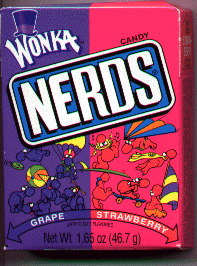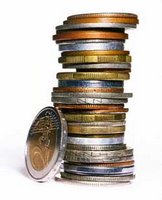
So if you read the first part you should have a well structured, easy to navigate site. The site should contain all your property listings and comply with the guidelines of the major search engines. You may have even created a site map to help the search engines find all of your content.
So now, how do you get your amazing site noticed? Links, that's how. Yes I know there is a whole world outside the net where you can publicise your site: newspapers, magazines and mouse mats with your company logo, but these come under offline marketing, about which frankly I know even less than I do about online marketing.
Online marketing is all about links, and there are essentially 2 types of links:
- Links that drive traffic to your site directly (advertising)
- Links that improve your position in search engines (and therefore indirectly drive traffic to your site)
More often than not you will purchase a link from, for example, a regional portal site. Compare prices of various packages and of various sites. You want to maximise your volume of relevant leads within your available budget. Don't be afraid to ask about their stats, and scrutinise these figures carefully, and if in doubt ask for a trial period to measure the efficacy of the placed ad(s).
It all boils down to cost per lead. A site may offer very cheap ads, but have either no traffic, or not enough traffic relevant to your product. Another site may initially seem quite expensive, but the resultant push of traffic could equate to a huge increase in the number of enquiries for your product. Overnight you become the darling of the sales team. Especially if the cost per lead knocks spots off traditional marketing methods.
The other type of link you will sell your grandmother for is the SEO type link. This is one where there may not be any immediately obvious benefit in direct traffic, but rather you place the link in order to improve your ranking in the search engines. If your sector is remotely competitive you will be seeking lots of these type of links to acheive any level of visibility in Google and the like. Note here I am referring to the main (or organic) rankings, not the sponsored advertising which appears alongside them. I'll mention these ads a bit further down.
Lets use hiperprop.com as an example. I want lots of links from other websites to point at hiperprop.com so we can let potential clients find us in Google or Yahoo or MSN. The first thing to do is to work out what keywords your pages should rank for. There are various keyword tools such as Overture Keyword selector that will give you an idea of how many searches are performed using various keywords. Ideally, for example, I would like hiperprop.com to rank for phrases like "Spanish Property" and "Property in Spain". Since these are popular search terms that match my product.
Usually the more popular a keyword phrase is, the more traffic it will produce, however bear in mind big volume keyword phrases tend to be very competitive and will require more links to achieve the desired visibility. Whilst we may want to rank for "Spanish Property", maybe a savvy SEO will realise that ranking for "Costa del Sol Property" is more quickly acheivable.
In fact I might be really bright and realise that I should try to rank for a bunch of more regional keyword phrases such as "Marbella Villas for sale" or "Apartments in Fuengirola". Whilst each of these individually deliver less quantity, collectively they will produce a significant level of site traffic, and moreover, often produce a higher quality of enquiry, since the keyword terms presuppose a level of knowledge of the region on the part of the searcher.
Look, the leads are now qualifying themselves! And these phrases ought to be significantly easier to compete for. These are often referred to as "niche keyword terms" in contrast to the more general keyword terms such as (in my case) "Spanish Property".
So you know your desired keyword phrase(s). Now what? Well I want to rank for "Spanish Property" so
- I make sure the page I am going to optimise talks about my keyword "Spanish Property". In the body, in the title, in the Paragraph headings etc..
- I find a site with pages that broadly correspond to my keyword term. Ideally it will also be a site, or a section of a site, that talks about "Spanish Property".
- In general the more authority a site has the more value the link will have for your purposes, eg a link from the Times Online Property section will carry more weight than exactly the same link from some crappy back bedroom property portal set up last week. Harsh but true.
- Finally I get the target site to link to my optimised page using "Spanish Property" as the text for the link. This is known as "Anchor text" (Thanks Conor).
 But then that's the real trick isn't it. How do you get them to want to link to you? Answers include (but are not limited to):
But then that's the real trick isn't it. How do you get them to want to link to you? Answers include (but are not limited to):- Money
- Begging
- Use and abuse friends with sites
- Exchange links (this can be reciprocal or triangular for example)
- Create what is known as linkbait - offer something unique/useful/mind blowingly original on your site and in theory (at least) it will organically garner links.
That's the theory anyway - in reality true linkbait is hard to create and viral inbound link growth is slow and uneven, unless you really have had a brilliant and original idea. So for us mere mortals a lot of networking, trading and slogging are on the horizon.
I was going to talk about Pay Per Click (PPC) and measuring your conversion rates, but I have droned on enough, and I've already missed the start of CSI:Las Vegas so they will have to wait until next time I'm in a mood to bore you all.
No comments:
Post a Comment